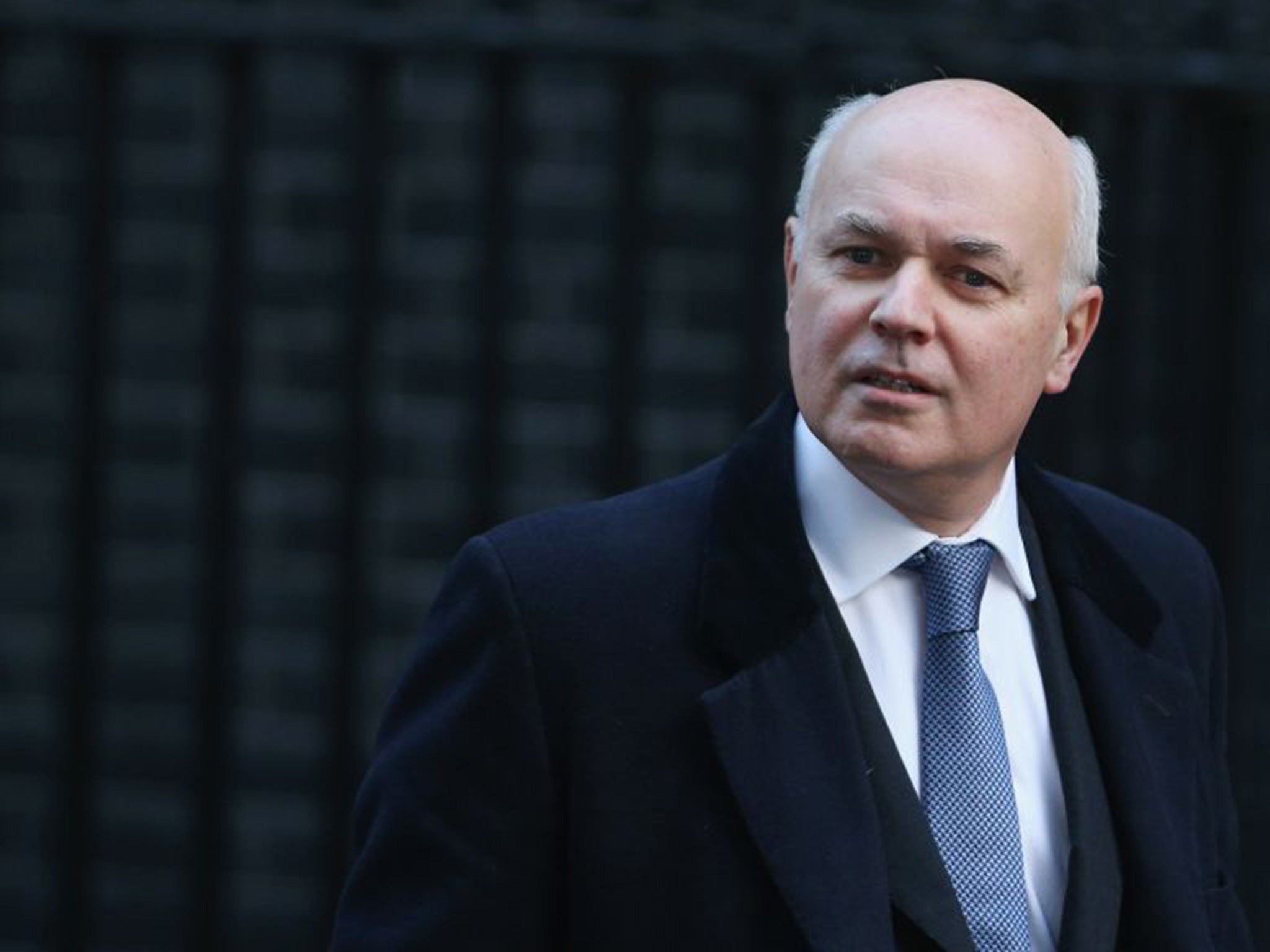The Inbetweeners: A political sitcom that may determine outcome of the EU referendum
Inside Westminster

When Iain Duncan Smith was reappointed to the Department for Work and Pensions after last May’s election, the word amongst his civil servants was that “we have got him for a year”. At the Treasury, some officials plotted to strangle his flagship Universal Credit benefits shake-up if he resigned from the Cabinet in spring 2016.
The assumption in Whitehall was that Duncan Smith would have to quit to campaign for an Out vote in the EU referendum, while David Cameron recommended that Britain stay in. But this week the Prime Minister announced that Eurosceptics would be allowed to keep their ministerial posts and argue for withdrawal once his new deal with the EU is struck.
Downing Street’s decision was inevitable, since a wave of damaging resignations by Eurosceptic ministers would have revived the Tory civil war on Europe and given the Out camp a huge boost. But the timing was forced Duncan Smith; Chris Grayling, the Commons Leader; and Theresa Villiers, the Northern Ireland Secretary, who made clear they would quit the Cabinet if they were not given free rein to back the Out campaign. “Iain didn’t threaten to resign; he offered to resign,” one ally said. Polite, but same difference.
Yet Cameron’s concession is less generous than it looks. Avoiding a Cabinet walk-out will make divisions less bitter and personal during the referendum, and the wounds easier to heal afterwards. That, in turn, would make it easier for his favoured successor George Osborne to win the Tory crown when he departs before the 2020 election. “The Cameron operation is all about George now,” whispered one insider.
Eurosceptic backbenchers wanted their ministerial allies to be free to speak out immediately but, by waiting until Cameron seals the deal, they will have to hold their fire until after the EU summit next month – or the following one in March. According to the Out camp, that gives the PM an advantage, since ministers can make the case for Europe over the next six to 10 weeks. They say the myth that Cameron could urge an Out vote has exploded. Philip Hammond, the Foreign Secretary, who once paraded Eurosceptic credentials, said he could not envisage arguing for leaving while the PM did the opposite. The Out campaign fears Downing Street will wheel out other pro-EU ministers over the next few weeks, giving Cameron a sense of momentum, while Duncan Smith and his allies remain muzzled for now.
His decision leaves a critical group of Cabinet ministers with a dilemma – the Inbetweeners whose heart is with the Eurosceptics but whose head tells them it might be in their personal interest to stick with Cameron. They include Theresa May, the Home Secretary; Boris Johnson, the Mayor of London; Michael Gove, the Justice Secretary; Sajid Javid, the Business Secretary; John Whittingdale, the Culture Secretary; and Justine Greening, the International Development Secretary.
The Inbetweeners are now coming under intense private pressure from Eurosceptics to take advantage of their new found freedom. Some MPs believe they could even determine the result of the referendum, by undermining Cameron’s arguments about the merits of his “new deal”.
True, the Inbetweeners may not all be “big beasts” like the ministers let off the leash by the Labour Prime Minister Harold Wilson, who also suspended collective Cabinet responsibility for the Europe referendum in 1975. That saw Roy Jenkins and Shirley Williams from the Yes campaign go head-to-head with Tony Benn, Michael Foot and Barbara Castle in the No camp.
But the Inbetweeners could draw blood if they sank their claws into Cameron. If May, after six years as Home Secretary, said the only way to bring immigration down to manageable levels was to leave the EU, it could be a game-changer. Johnson saying the City of London would prosper outside the EU, and Javid talking up the trade deals that could be struck if Britain went alone, would also be powerful messages.
On the face of it, Cameron’s decision should allay the fears of Eurosceptics wary of opposing him. But political life is more complicated than that. If he wins the referendum, Cameron would be in a strong position, able to promote those who remained loyal to him on Europe and sideline or sack those who did not. “People are realising that a free vote is not always as free as it looks,” one prominent Tory Europhobe admitted. “We hope they will do the right thing but some may be tempted to stick with Cameron if they think he’ll win.”
Their allies insist that Eurosceptic ministers should be reassured by talk of a “reconciliation reshuffle” in which Eurosceptics such as Liam Fox, the former Defence Secretary, would be restored to the Cabinet. But ministers know that such hints from No 10 are not bankable.
In the end, the Inbetweeners may decide that their best bet is to remain loyal to Cameron. But another factor will weigh on their minds. When Cameron departs, he will not choose his successor. The party’s members will, and a survey by the ConservativeHome website this week found that 67 per cent of them want to leave the EU, while only 25 per cent want to remain.
As Wilson found, referendums do not always settle the issue, and Tory members may well be tempted to elect a Eurosceptic leader next time. Which makes the dilemma facing the ambitious May and Johnson very acute indeed.
Join our commenting forum
Join thought-provoking conversations, follow other Independent readers and see their replies
Comments